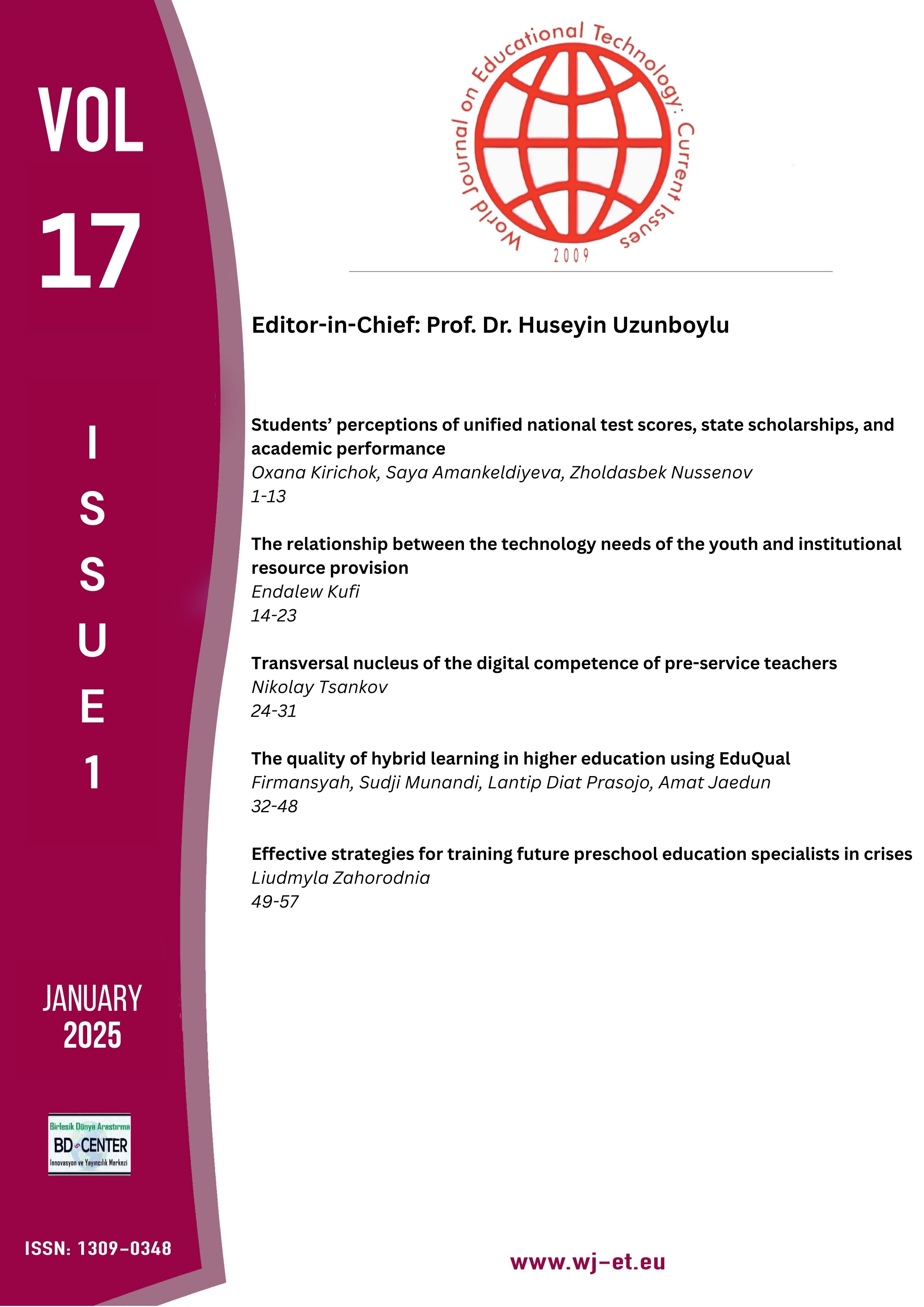The quality of hybrid learning in higher education using EduQual
Main Article Content
Abstract
The purpose of this study was to develop the dimensions of the EduQual instrument with hybrid learning characteristics and measure the quality of hybrid learning for undergraduate students at Yogyakarta State University. A survey method was used in this research. The subjects of this study were undergraduate program students at Yogyakarta State University in courses oriented toward theoretical studies. Based on the analysis of EFA and CFA, it can be concluded that the model developed by the researcher meets the criteria of construct validity and reliability. On the validity and reliability of the content involving experts, it was also concluded that the instrument was acceptable. The instrument can measure the quality of hybrid learning in tertiary institutions. Meanwhile, the results of a survey using the EduQual instrument developed regarding the quality of hybrid learning conducted for one semester after the pandemic were included in the moderate category. This shows the need to improve the quality of hybrid learning conducted by lecturers and universities. This increase is not only in the ability of lecturers to use the hybrid learning model, but physical facilities such as internet networks, software, and hardware need to be optimized.
Keywords: EduQual; education quality; high school; hybrid learning.
Downloads
Article Details

This work is licensed under a Creative Commons Attribution 4.0 International License.
World Journal on Educational Technology: Current Issues is an Open Access Journal. The copyright holder is the author/s. Licensee Birlesik Dunya Yenilik Arastirma ve Yayincilik Merkezi, North Nicosia, Cyprus. All articles can be downloaded free of charge. Articles published in the Journal are Open-Access articles distributed under CC-BY license [Attribution 4.0 International (CC BY 4.0)].
Birlesik Dunya Yenilik Arastirma ve Yayincilik Merkezi (BD-Center)is a gold open-access publisher. At the point of publication, all articles from our portfolio of journals are immediately and permanently accessible online free of charge. BD-Center articles are published under the CC-BY license [Attribution 4.0 International (CC BY 4.0)], which permits unrestricted use, distribution, and reproduction in any medium, provided the original authors and the source are credited.
